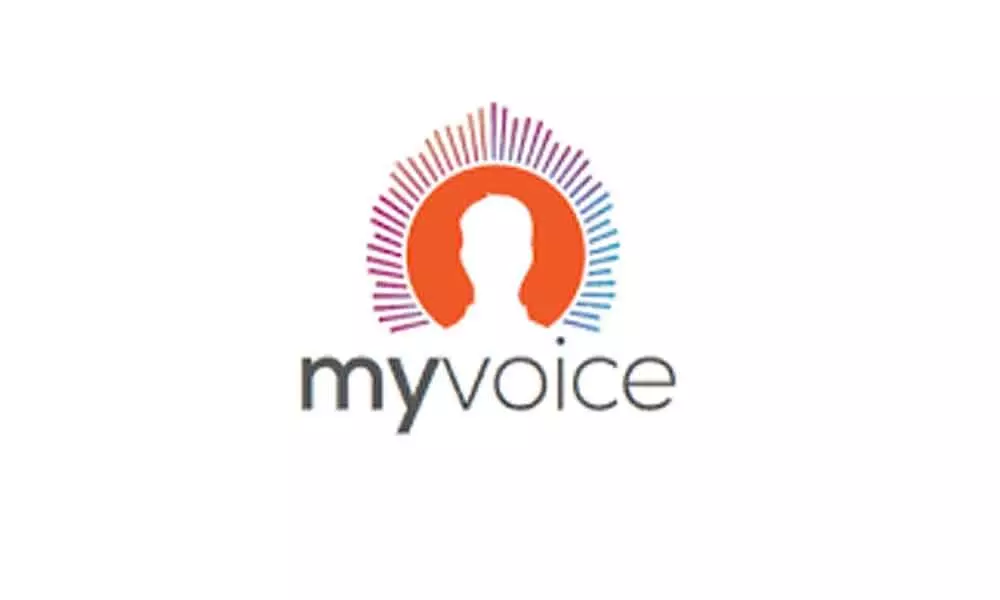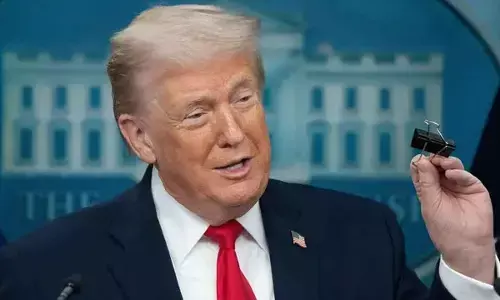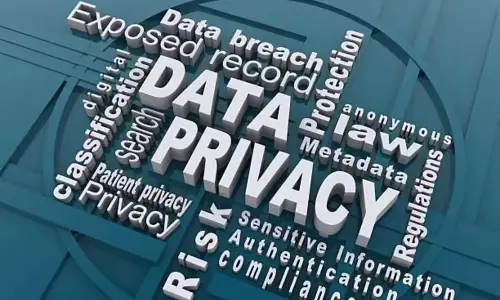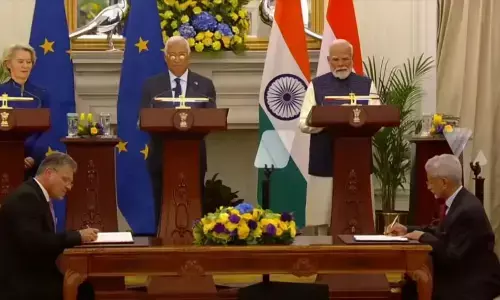MyVoice: Views of our readers 18th October 2020

MyVoice: Views of our readers 31st December 2020
MyVoice: Views of our readers 18th October 2020
The second wave of the pandemic
More of the countries are being placed under Tier 2 and 3 Covid-19 restrictions, with the UK also joining the long list. So far, Western countries have resisted pressure for a circuit-breaker lockdown, but paid a heavy price for the same.
Local lockdowns could persist for several months, leading to a daunting and difficult winter. As soon as the virus spread across the globe, inaccurate and even dangerous messages proliferated wildly over social media, leaving people confused, misled and ill-advised and that is going rounds since March this year.
There is no certainty that a vaccine will be found by the end of the year. We are all waiting for the D-Day with bated breath when the nation will announce the clearance of the outbreak. Genie will be out of the bottle and Corona will take its place. Once bottled, it will be thrown in the deep sea never to be found again.
Jayanthy Subramaniam, Coimbatore
Dangerous anniversary gift
North Korea by unveiling its new intercontinental ballistic missile (ICBM) the other day, coinciding with the occasion of 75th anniversary of the founding of North Korea, has demonstrated to the world the country's capability to hit any part of the world with these nuclear warheads. This mammoth nuclear capable missile is believed to be Pyongyang's latest and lethal weapon in its arsenal, about which the US had expressed serious and legitimate apprehensions earlier.
N Korea has already achieved the capacity to deliver similar missiles by submarines, as well as by mobile land facilities. This nuclear arm flexing by N Korea has its salutary effect on the US by way of intimidating the warmongering as it did against North Vietnam, Afghanistan and Iraq - to engage in dialogue, in a level headed manner to steer from the course of a military showdown. It is time for N Korea to focus on the welfare of its people who are under the severe sanctions imposed by the US for the nuclear sabre rattling that made the country an international pariah – thanks to China. N Korea must now help people enjoy the advantages of developments in tune with other countries, by granting basic freedom of expression and liberty.
North Korea can learn a great deal by looking at South Korea, and revamp the country industrially, at the same time showing willingness to maintain meaningful ties with that country. Kim Jong Un being a young leader is capable of achieving this. But, his moves, so far, have been unceremoniously inimical to South Korea's well-meaning initiatives.
It is time for Kim to trust his deputies in delegating more responsibilities on the vital areas of North Korea's developmental aspects, like food, housing and health to knowledgeable and level-headed individuals to help shore up these things. N Korea must come out of the shell by foraging improved and constructive ties with the US and other world countries by promising to be a responsible nuclear power, to fit into the present equation of world order; and ready to willingly bury the tyrant status.
K V Raghuram, Wayanad
'Right'ing the wrongs
I am a regular reader of The Hans India. I have noticed that the city and district coverages of Telangana are being presented well, especially in these past few months. However, in today's paper I saw a news item on page 2 'Khammam girl set on fire for resisting rape dies in Hyderabad'.
In this report it was reported that the girl's parents performed 'last rights' when it should have read as 'last rites'. This has been repeated once more in the report, which could have been avoided.
V Krishnamurthy, Hyderabad
Disabled persons heavily discriminated in employment
Disabled persons are a harried lot and face problems at every stage of employment whether it is at entry level or at transfer/promotion/retirement or at pension stage. At each level employee had to approach the higher authorities and in rare cases have to approach the court also.
I hereby explain each stage in a very brief manner quoting one case of court such as:
1. I refer case of Ira Singal who was IAS topper and had to fight in the Court due to her disability.
2. Second case is of a direct recruit officer who was disabled and after completion of the probation he was transferred to rural branch and the officer produced the administrative circular issued in 1986 where it was clearly mentioned that bank cannot transfer him even then bank transferred him.He approached Indore High Court and the court reversed the orders.
3. Now I refer case of person who was having one eye visibility only and he was in Scale 3 in State Bank since long. For post of Scale 4 his application was rejected with the reason that due to one eye he is not eligible for the Scale 4 and challenged in the court and the court passed the orders in his favour.
4. Fourth case is related to IAS who developed mental problems when he completed 30 years of service and the department forcefully retired him and he challenged his retirement in the court and court passed the orders in his favour.
5. In the banking sector, if any disabled due to total incapacitation applies for premature retirement after completion of 28 years of service he is not eligible for five years notional benefit in pensionary benefits due to his total incapacitation but if an able person applies he will get the notional benefit of five years in the pensionary benefits and this anomaly persists for the last 24 years.
So from the above it is very much clear that a disabled have to face problems at every stage of service.. The concluding paragraph of my submission is same as.that of concluding paragraph of Supreme Court decision related to the disabled person and quoted example of world famous disability activist Kellen Helen which is as under: 'We would like to conclude this judgment by observing that to most disabled persons, the society they live in is a closed door which has been locked and the key to which has been thrown away by the others.
Helen Keller has described this phenomena in the following words: "Some people see a closed door and turn away. Others see a closed door, try the knob and if it doesn't open, they turn away. Still others see a closed door, try the knob and if it doesn't work, they find a key and if the key doesn't fit, they turn away.
A rare few see a closed door, try the knob, if it doesn't open and they find a key and if it doesn't fit, they make one!" These rare persons we have to find out."
Yash Pal Ralhan, Jalandhar
Centre should waive compound interest on loans till Feb 2021
With festivals around the corner, the common man is keenly looking to Central government's decision to waive compound interest on loans up to Rs.2 crore. People are pinning their hopes not only on waiving compound interest but also on normal interest on loans up to Rs.2 crore for six months of the Covid moratorium period from March 1 to August 31.
Thus, Central government's decision to waive interest will be very much welcomed by millions of people as it will bring more cheers to myriad homes where fire will burn brightly in the hearth if the Central government waive interest on loans and extend moratorium for another six months.
It is to be admitted that there are rampant Covid-induced pay cuts and layoffs across the whole of India and people are living in stressful conditions. Covid-19 is a global pandemic and everywhere people are given sops and solatium to tide over the Covid-induced economic crisis. But only in India people are denied freebies on the pretext of people will become delinquent.
At a time when people are facing Covid-induced problems, government is required to rush to them to buttress them, which is the duty of the government. Here, the government plays hide and seek with the banks and dilly-dallies on the matter of waiving interest on loans. How callous the government is towards the people! Thus, regarding the attitude of the government towards the common man, perhaps the less said, the better.
It is pertinent to note that our country is going through an unprecedented economic crisis due to the most devastating pandemic, Covid-19, which has been wreaking havoc on the country and its people since its outbreak early this year. The government has admitted that people lost their jobs and all kinds of industrial and business organisations suffered huge loss and our economy took a nosedive in the crisis.
Admittedly, at a time when our economy became fragile one through several ill-advised and unwise decisions, the pandemic started ravaging our country. The country is still going through a severe economic crisis with no signs of recovery even in the immediate future. People are struggling hard to make both ends meet.
Majority of people have no savings at all to steer clear of this crisis time and 'how long the pandemic would hold sway over our country and when it will end' cannot be predicted at all this time. As people have become penurious and helpless during this pandemic time, the government must help them instead of harming them.
The Central government must extend moratorium to at least another six months and waive all kinds of interest during the moratorium period.
Waiving of interest during the moratorium period will not affect the banks badly though the RBI claims otherwise. Admittedly, there will be a little loss of profit to them, but it will never affect their real asset.
Then why should the banking sector alone insist that they cannot waive interest of loans during the moratorium period? This is their ploy to drain the loanees notwithstanding the loanees' desperate economic plight.
At this juncture, it would be indeed helpful for the common man to extend moratorium up to at least February 2021 and waive all kinds of interest during the moratorium period so that people can breathe a sigh of relief. After all, this year Diwali comes to every household and it would be a gesture of goodness on the part of the Central government to bring cheers to every family on the occasion.
T K Nandanan, Kochi
Support pharmacists to improve public health
The role of the pharmacist is paramount in maintaining good health over a period of ten years, with pharmacists working tirelessly to find a vaccine that will keep pace with the growing number of new diseases and viruses around the world.
The role of the pharmacist in many aspects such as the efforts of our country's pharmacists in the invention of new drugs in a way that is unmatched by any other country in the world is commendable, as is the preparation of drugs, monitoring of their quality standards, storage of drugs with appropriate technology, and awareness of drug side effects to patients.
Only a pharmacist can understand how to use the medicine in any dose. The pharmacist acts as a connection between the patient and the physician and responsibly fulfils his role in public health care. If the physician is the one who diagnoses the disease and prescribes the appropriate medicine, the pharmacist will make the patient aware of the drug selection, dosage, and method of use. Truth be told he is the doctor behind the scenes.
That is why the onus is on the shoulders of pharmacists to provide treatment when paramedics are not available in emergencies at health centers. The Shankar Rao Chavan Parliamentary Sub-Committee has officially confirmed this.
The Union Ministry of Health has recognized the Pharmacist distinction in the National Health Policy 2017. It advised pharmacists to train on social health and utilize their services in the field. Jaisukh Lal Hathi, Justice Lentin, Bajaj Committees made many suggestions and recommendations for the improvement of the pharmacy departments of the Medical Department. In 1996, the Study Group of Hospitals, chaired by Ajit Prasad Jain, recommended that even small hospitals should have at least three pharmacists.
The involvement of a pharmacist is essential for the desired result to be achieved through treatment. This is because it is up to the pharmacist to decide which drug works for which disease. Not only has that but sometimes the pharmacist also had the power to review prescription drugs. Ignoring the role of pharmacists in drug use, their use has increased irregularly and erratically.
Thereby many health problems surround and fatal side effects occur. Pharmacists have the decision-making knowledge in terms of drug standard and uses. Thus the role of the pharmacist in public health care should not be ignored under any circumstances.
This is why pharmacists are so popular in European countries such as Germany, France, Britain, Italy, and in Arab countries such as Saudi Arabia. In those countries, doctors diagnose the disease after testing and diagnose it as a particular disease, a particular drug.
The pharmacist prescribes to the patient what medicine is suitable for the disease, at what time, in what dose, and in what manner. In some European countries, the pharmacist also has the power to diagnose a patient and prescribe medication.
But the situation in our country is completely different. There is no actual relationship between the pharmacist and the doctor. No such system exists here. No matter how careless or negligent in the distribution of drugs, health will be affected. The patient has a better chance of a speedy recovery if the medicine is used in the right manner and in the right dosage.
Therefore, medicines should be dispensed to patients under the supervision of a pharmacist. Recognizing this need in the early days of independence, the then heads of state designed the Pharmacy Chat with the aim of protecting public health. It was approved by Parliament in 1948. However, like all laws, it is limited to partial enforcement.
Another issue is whether pharmacists have the right job, employment opportunities or are facing serious financial difficulties, affordability to own pharmacies or renting certificates. Therefore, pharmacist posts should be filled in government hospitals, primary health centers and rural health sub-centers to create employment opportunities for pharmacists.
Unemployed pharmacists should be provided interest free loan facility to set up pharmacies. Thus pharmacists who play their part responsibly in public health care should be supported. They should be encouraged to make new discoveries.
Only then will they step out of the conditions of renting certificates and towards the possibilities of being able to stand on their own two feet. The governing bodies should think about the welfare of pharmacists on the occasion of the celebration of World Pharmacist Day every year.
Dr N Khaleel, Hyderabad

















